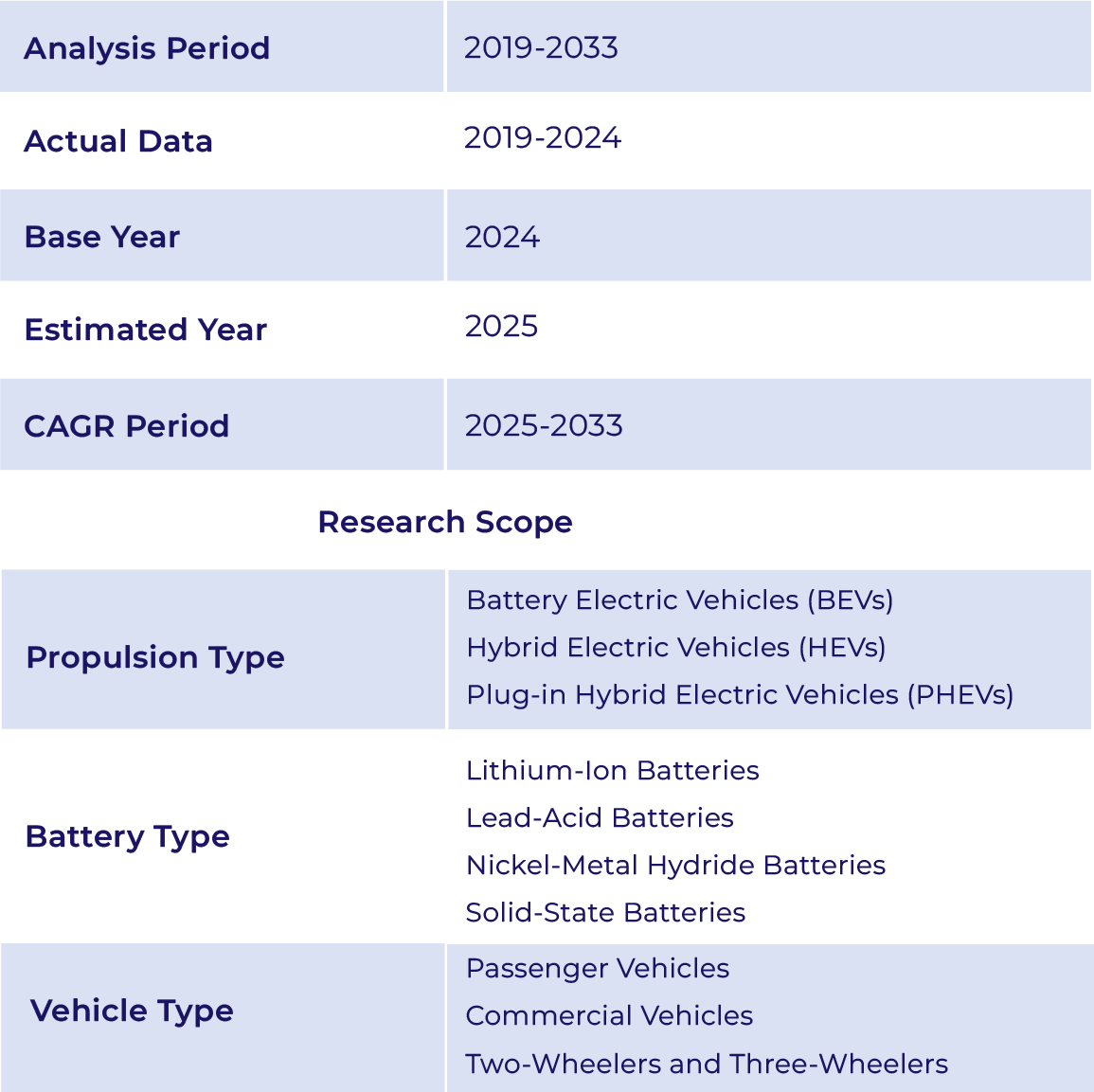Benelux Electric Vehicle Battery Market Growth and Performance
- Marked by increased EV deployment, the Benelux EV battery market expanded by XX% in 2024, pushing its valuation to US$ XX million.
- Analysts expect this upward momentum to continue, with the market projected to grow at a CAGR of XX% through 2033 and achieve a valuation of US$ XX million.
Benelux Electric Vehicle Battery Market Outlook
The Benelux region—comprising Belgium, the Netherlands, and Luxembourg—is experiencing a pivotal transformation in the electric mobility ecosystem. Fueled by stringent EU emission mandates, government-backed EV subsidies, and surging consumer demand, the electric vehicle (EV) battery market is forecast to enter a high-growth trajectory over the next five years. Benelux’s strategic location within Europe, combined with its robust logistics infrastructure, positions it as a prime hub for battery manufacturing, distribution, and deployment.
A testament to this shift is Volvo Group’s announcement in September 2023 to initiate EV battery module production at its Ghent facility in Belgium. This marks one of the first in-house battery production capabilities in the region and signals a transition toward more localized, vertically integrated supply chains. Designed to support Volvo’s heavy-duty electric trucks, the facility strengthens Belgium’s position in the European clean energy manufacturing corridor and demonstrates industrial readiness for next-generation electrification.
Benelux Electric Vehicle Battery Market Drivers
What sets the Benelux EV battery market apart is its ability to scale demand-led infrastructure rapidly and responsibly. With densely populated cities and strong environmental regulations, the region is driving EV adoption through both consumer policy and backend infrastructure innovation. One of the most pressing demands is ensuring seamless, high-speed charging access across urban and intercity networks.
In March 2024, a major push came from Kempower and PowerGo, who together laid the groundwork for Belgium's first full-service EV fast-charging network. But this is more than just charger installation—it's a deliberate market catalyst to unlock consumer confidence in EV range reliability. Their model integrates software diagnostics, payment interoperability, and fleet analytics—suggesting that the real driver isn’t the hardware, but the energy intelligence layer enabling it. This infrastructure backbone will drive battery demand by catalyzing EV adoption, commercial fleet electrification, and government e-mobility incentives—all of which feed directly into increased battery consumption and investment.
Benelux Electric Vehicle Battery Industry Trends
The Benelux battery ecosystem is undergoing a subtle but strategic transition from raw deployment to energy integration. This means batteries are no longer seen merely as EV components—but as modular assets capable of enhancing energy flexibility, grid resilience, and decarbonization targets.
A notable trend emerged in April 2024, when Centrica expanded its green power portfolio through the acquisition of distributed battery assets in Belgium. The underlying goal? Not simply energy storage, but grid responsiveness. By placing smart battery systems across critical load points, they aim to balance renewable intermittency, manage EV charging surges, and support microgrid development in urban zones. This is part of a broader trend: using EV battery infrastructure as a tool for energy orchestration rather than just mobility. It’s a future where batteries play dual roles—fuelling transportation and stabilizing electricity supply chains simultaneously.
Benelux Electric Vehicle Battery Industry Development
The Benelux EV battery market is no longer in its infancy—it is entering a phase of industrial consolidation and strategic alignment with pan-European climate goals. Initiatives are focusing not just on growth but on sustainability, integration, and long-term resilience. Take Volvo's move in February 2024—establishing an EV battery module plant in Ghent wasn’t just about capacity; it’s a nod to the EU’s industrial sovereignty ambitions. By internalizing battery production, automakers are hedging against international volatility, aligning with the EU Battery Regulation, and preparing for full-lifecycle EV manufacturing within European borders. Simultaneously, governments across Benelux are offering financial mechanisms and policy tailwinds to enable such developments—whether through R&D grants, green loan guarantees, or regional carbon credits. These developments signal a new industrial era where batteries are no longer a downstream component but a strategic input at the heart of Benelux’s green economic transition.
Benelux Electric Vehicle Battery Market Scope







